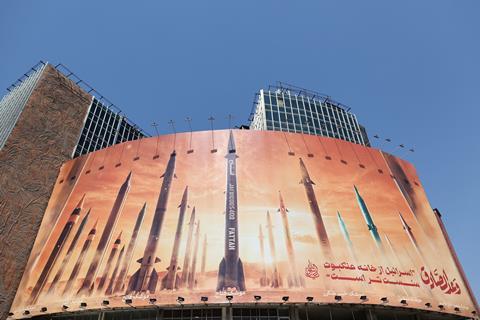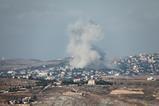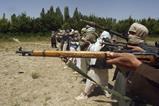A war would have potentially devastating consequences for Christian minorities in the Middle East, warns Dr Martin Parsons

It was 1991, early in the first Gulf War and I and colleagues in Pakistan huddled round the kitchen table listening to the BBC World Service every hour. Iraqi dictator Saddam Hussein, having months earlier invaded Kuwait, had now begun firing scud missiles at Israeli cities in an attempt to drag Israel into the war. We all understood that if Israel retaliated, it would ignite a wider war in the Middle East that would potentially drag in other Islamic countries such as Pakistan.
The Pakistani government had originally condemned Saddam’s invasion of Kuwait. But as soon as Western bombing of Iraq started the whole situation reversed. It seemed every rickshaw in town carried a picture of Saddam and we could hear riots on the nearby Grand Trunk Road, with protesters burning effigies of US President George Bush and shouting “death to America”.
It’s a picture of what happens when there is an attack on an Islamic country by a non-Islamic one. The whole ummah – the Muslim community – feels a deep emotional urge to come together to defend its own. Unfortunately, what that means is that Christian minorities in the Islamic world immediately become seen as suspect - and even the target of mob violence.
Radical Muslims divide the world into Dar-al-Islam - the world of Islam, and Dar al-Harb - the world of warfare. In Dar al-Harb, jihad must be waged to enforce Islamic government and law and non-Muslims, such as Christians and Jews, forced to submit to dhimmitude. The latter, though sometimes claimed by Western liberals to be a form of toleration, is in fact, a non-citizen status where Christians and Jews are permitted to live, provided they remain subservient to Islamic government and law.
What that creates is an often-widespread attitude which regards Christian minorities in Islamic countries as “suspect” and even potential traitors. They are seen as being on the wrong side – aligned with the West, following a “Western religion” – and potential supporters of Israel, which as one Pakistani school textbook I saw put it, is “the enemy of all Muslims”.
So, any war between an Islamic country and Israel is a high-risk situation for Christians across the Islamic world.
What are the current risks for Christian minorities? First Iran has just upped the stakes very significantly by carrying out its first ever direct attack on Israel – rather than carrying out attacks by its proxies such as Hamas in Gaza, the Houthis in Yemen and Hezbollah, who it set up in Lebanon in the 1980s. In other words, this has just changed from being a cold war to a hot war.
Now Israel has responded with a direct and explicit military attack. This could unite the whole Islamic world against those who are perceived to be “the enemies of Islam”. Mobs across the Islamic world could easily be incited by those seeking to stir up further trouble. If that were to happen it is likely there will be mob violence against Christian minorities.
However, the biggest danger is that Iran responds to this Israeli retaliation by ordering its proxy Hezbollah, who already have effective political control of much of Lebanon, to attack Israel. Iran has long been supplying Hezbollah with missiles which is now estimated to have between 120-150,000, enough to overwhelm even Israel’s Iron Dome defence system.
Lebanon exists as a delicate balance between ancient Christian, Shi’a and Sunni communities and their rival political parties, including Hezbollah. Communal tensions were already high before Hamas’ October 7 attack on Israel, with some serious sectarian clashes. Since then, Hezbollah has been repeatedly firing rockets into northern Israel, sometimes from predominantly Christian areas.
Any major war between Israel and Hezbollah could all too easily drag the country back into the civil war which devastated Lebanon between 1975-90. Lebanon was once the Christian enclave in the Middle East and it still has one of the largest Christian populations in the region. It was the obvious place for many Syrian Christians to flee to when Islamic State and other jihadist groups seized large areas of Syria during the Syrian civil war. But no one should be in any doubt that a war engulfing Lebanon could lead to the collapse of its Christian population.
In 1900, around 12 per cent of the population of the Middle East and the North Africa were Christians, today it is estimated to be only around 4 per cent. In the last few years we have seen the collapse of the Christian population in Iraq from an estimated 1.5 million in 1990 to less than 200,000 today, largely due to jihadist attacks on Christians and the seizure of territory by Islamic State. For similar reasons large numbers of Christians fled from Syria during the civil war.
There are still significant Christian populations in Lebanon, Egypt and a smaller one in Jordan. But no one should be in any doubt that a major Middle East war would have potentially devastating consequences for the Christian population of the Middle East, as they would be seen as having picked the wrong side because of their faith.






































1 Reader's comment